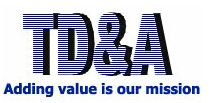1. WHAT IS SEDEX?
Sedex is one of the world's leading ethical business service providers, striving to improve working conditions in global supply chains. Sedex offers tools, services, and a community network to help businesses enhance sustainable and responsible business practices as well as responsible sourcing. Sedex has developed the Sedex Members Ethical Trade Audit program (also known as SMETA) as a method to assess business ethics issues within companies.
2. WHAT IS SMETA?
SMETA stands for Sedex Members Ethical Trade Audit, which evaluates the ethical business practices of Sedex members. SMETA includes assessment techniques based on best practices to help auditors conduct high-quality audits across all aspects of responsible business operations, focusing on Sedex’s four pillars: Labor, Health and Safety, Environment, and Business Ethics.
3. THE IMPORTANCE OF SMETA FOR BUSINESSES
By implementing SMETA, businesses can identify many good practices in various employment conditions. The SMETA audit brings numerous benefits, such as providing evidence that a company is committed to ethical business operations—a factor increasingly valued by consumers. SMETA ensures that companies can legitimately claim their products are traded fairly, thereby gaining a competitive advantage by demonstrating their ethical stance.
4. SMETA STANDARD STRUCTURE
The SMETA standard is divided into: SMETA - 2 Pillars and SMETA - 4 Pillars.
5. SMETA - 2 Pillars includes:
- Labor standards
- Health and Safety
- Additional elements
- General rights under UNGP (United Nations Guiding Principles)
- Management systems
- The right to work
- Subcontracting and homeworking
- Reduced environmental assessment
6. SMETA - 4 Pillars includes all elements of SMETA - 2 Pillars above plus:
- Environmental assessment (expanded) — this replaces the reduced environmental assessment mentioned above
- Business ethics
